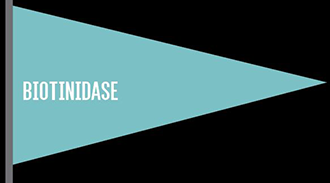


Top Tests
The Iowa Newborn Screening Program added to its screening panel the first condition to directly use a DNA target as the marker for the disorder, and it is also the first condition for which a cure is available.
The Newborn Screening section identifies infants at risk for more than 50 inherited metabolic diseases by testing a small blood spot obtained from a simple heel-stick shortly after birth. At this age, most infants with an inherited condition show no obvious signs of disease. However, with special tests, the Iowa Newborn Screening Program can identify an infant who may be at risk, and alert the doctor and caregivers of the need for immediate medical treatment for the infant.
With early diagnosis and medical treatment, complications from these serious, but uncommon, conditions can usually be prevented. The goal is to identify the disorder before the disorder has time to cause damaging health effects.
The Iowa Newborn Screening Program is part of the Iowa Department of Public Health, and is a collaborative effort between the IDPH, the State Hygienic Laboratory, the University of Iowa Children’s Hospital, Central Delivery Service of Iowa, and Iowa birthing and newborn care providers. In addition to Iowa, the Hygienic Laboratory provides newborn screening testing for North Dakota and South Dakota.
- Screening for Severe Combined Immunodeficiency (SCID) was integrated into the Iowa newborn blood spot screening panel on July 1, 2014. SCID represents a fundamental change in comparison to the other conditions that are screened for. It is the first condition to directly use a DNA target as the marker for the disorder, and it is also the first condition for which a cure is available.
- In addition to laboratory activities, education and outreach activities were a focus of the newborn screening program. The program visited six hospitals (representing nearly 30 percent of births in Iowa) to provide information and training in best practices for newborn screening blood spot collection
- The Iowa Newborn Screening Program was selected to be a part of the Association of Public Health Laboratory’s NewSTEPs pilot Collaborative Improvement and Innovation Network (CoIIN) for Timeliness in Newborn Screening. This project aims to strengthen relationships at hospitals and provide education for best practices with the intent of improving response time for babies born in Iowa, and eventually for all babies born in the U.S.








